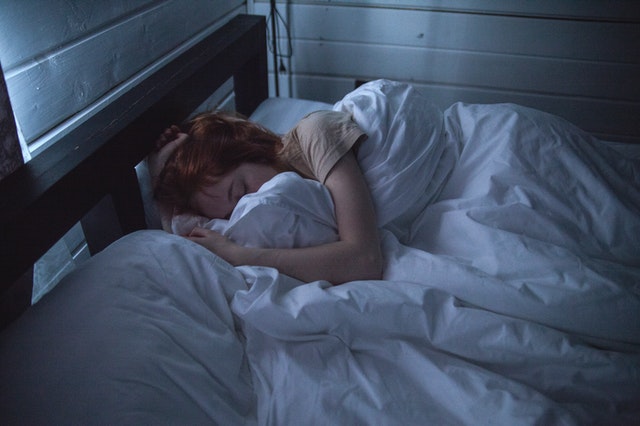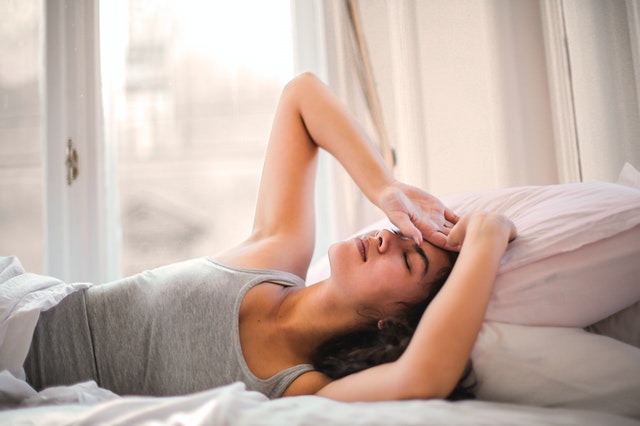Do you have difficulty sleeping at night? Are you tossing and turning without being able to relax? If so, you’re not alone. Two out of five Aussie report occasional insomnia, and 14.80 per cent say they experience chronic insomnia. There are several things you may do to enhance your sleep hygiene and obtain a good night’s sleep. In this post, we will go through 8 tips that will help you get the most out of your slumber!
Get a good night’s sleep: tips to help you fall asleep and stay asleep
1) Establish a regular bedtime routine
Setting a regular sleep regimen is the first and foremost step to getting a good night’s sleep. This involves hitting the bed daily at a fixed time, even on weekends.
Maintaining a predictable sleep routine helps the body’s internal clock regulate your natural sleep-wake cycle, making it easier for you to sleep and wake up feeling refreshed.
The best way to build a routine is to start by eliminating activities that prevent you from going to sleep, such as watching television or working on the bed. Once you have identified your sleep inhibitors, you can start to add activities that help promote sleep, such as reading or taking a bath.
2) Avoid caffeine and alcohol before bedtime

Caffeine and alcohol are two other common sleep inhibitors. Caffeine, a stimulant, is found in coffee, tea, soda and chocolate. It takes about six hours for the effects of caffeine to wear off, so it’s best to avoid caffeine after lunch if you’re having trouble sleeping at night.
While alcohol may make you feel sleepy, it can actually disrupt your sleep later in the night. Alcohol prevents you from reaching the deepest stages of sleep, so you may wake up feeling groggy and unrefreshed.
So it’s best to avoid both caffeine and alcohol before bedtime if you want to get a good night’s sleep.
3) Keep your bedroom cool, dark, and quiet
Another important factor in getting a good night’s sleep is the environment in which you sleep. To build an optimal sleep setting your bedroom should be cool, dark, and quiet.
If your bedroom is too bright, try using blackout curtains or an eye mask to block out the light. If it’s too noisy, try using a white noise machine or earplugs to drown out the sound. And if your bedroom is too warm, try using a fan or air conditioner to cool things down.
You’ll be more likely to fall asleep and remain asleep throughout the night if you establish a bedroom atmosphere that encourages sleep.
4) Follow relaxation techniques for falling asleep
If you’re unable to sleep and find yourself lying in bed awake, there are a few relaxation methods that might help you fall asleep. One is progressive muscle relaxation, which involves tensing and relaxing different muscle groups in the body. Another is deep breathing, which can help to slow down your heart rate and breathing. Meditation and visualization are also helpful relaxation techniques.
Mediation is the easiest option to start with. It only requires you to focus on your breath and clear your mind for a few minutes. You can do it lying down on the bed or sitting in a comfortable position.
Whichever method you choose, be sure to practice regularly.
5) Invest in a comfortable mattress and pillow
The quality of your sleep is also influenced by the quality of your bedding. The right mattress and pillow can make a world of difference in the way you feel when you wake up in the morning. If you’re not comfortable, you’re more likely to toss and turn all night long.
To find the right mattress, it’s important to consider your sleep habits. If you’re a side sleeper, you’ll need a softer mattress that contours to your body. Back sleepers prefer a firmer mattress that provides support.
Similarly, pillows should be chosen based on your sleep position. Side sleepers need a high loft pillow that adequately fills the space between your head and shoulder. Back sleepers will need a lower loft pillow that keeps your head and neck in alignment.
If you’re unsure what mattress or pillow is right for you, it’s best to consult with a sleep specialist. They can help you find the perfect bedding for your needs.
6) Reserve the bed for sleep – don’t work or watch TV in bed

The bed is the place where we sleep, so it’s important to reserve it for that purpose. Working or watching television out of bed breaks the psychological barrier between bed and sleep. You wouldn’t want to work at your desk and then try to sleep there, would you?
The same goes for watching television. If you watch TV in bed, your brain starts to associate the bed with being awake. So when you try to sleep, your mind is still thinking about the show you were watching earlier.
Further, blue light from the TV or laptop affects the circadian rhythm and suppresses melatonin, making it harder to sleep. So it’s important to keep the bed a sleep-only zone so you can train your brain to associate it with sleep.
7) Exercise for better sleep
Working out is a great way to calm your body and mind and improve sleep. Exercise releases endorphins that have mood-boosting effects and can help you relax before bed. But it’s important to do it at the right time. Exercising too close to bedtime might make it more difficult to get sleepy.
Purely from a sleep perspective, the optimum time to exercise is in the early evening, at least a few hours before bedtime. This gives enough time for the body to rejuvenate and wind down so you can sleep peacefully through the night.
If you can’t fit in a workout earlier in the day, there are still some things you can do to prepare for sleep. Stretching or doing relaxation exercises like yoga or pilates before bed can help to ease your muscles and mind into a state of rest.
8) Address any underlying stress or anxiety issues
Stress and anxiety have a big impact on your sleep. Unless these issues are addressed, it will be difficult to get a good night’s sleep. More often than not, the first step to addressing these issues is to see a doctor or therapist.
They can help you identify the source of your stress and anxiety and develop a plan to address it. This may include therapy, medication, or both.
If you’re having trouble sleeping, don’t hesitate to reach out for help. There are many resources available to you. Talk to your doctor, see a therapist, or join a support group. With the right help, you can restore your sleep and improve your overall health.
Wrapping up
There you have it! These are just a few tips to help you get a good night’s sleep. Remember, the key is to find what works for you and stick with it. With a little effort, you can get the sleep you need to feel your best. Thanks for reading!

